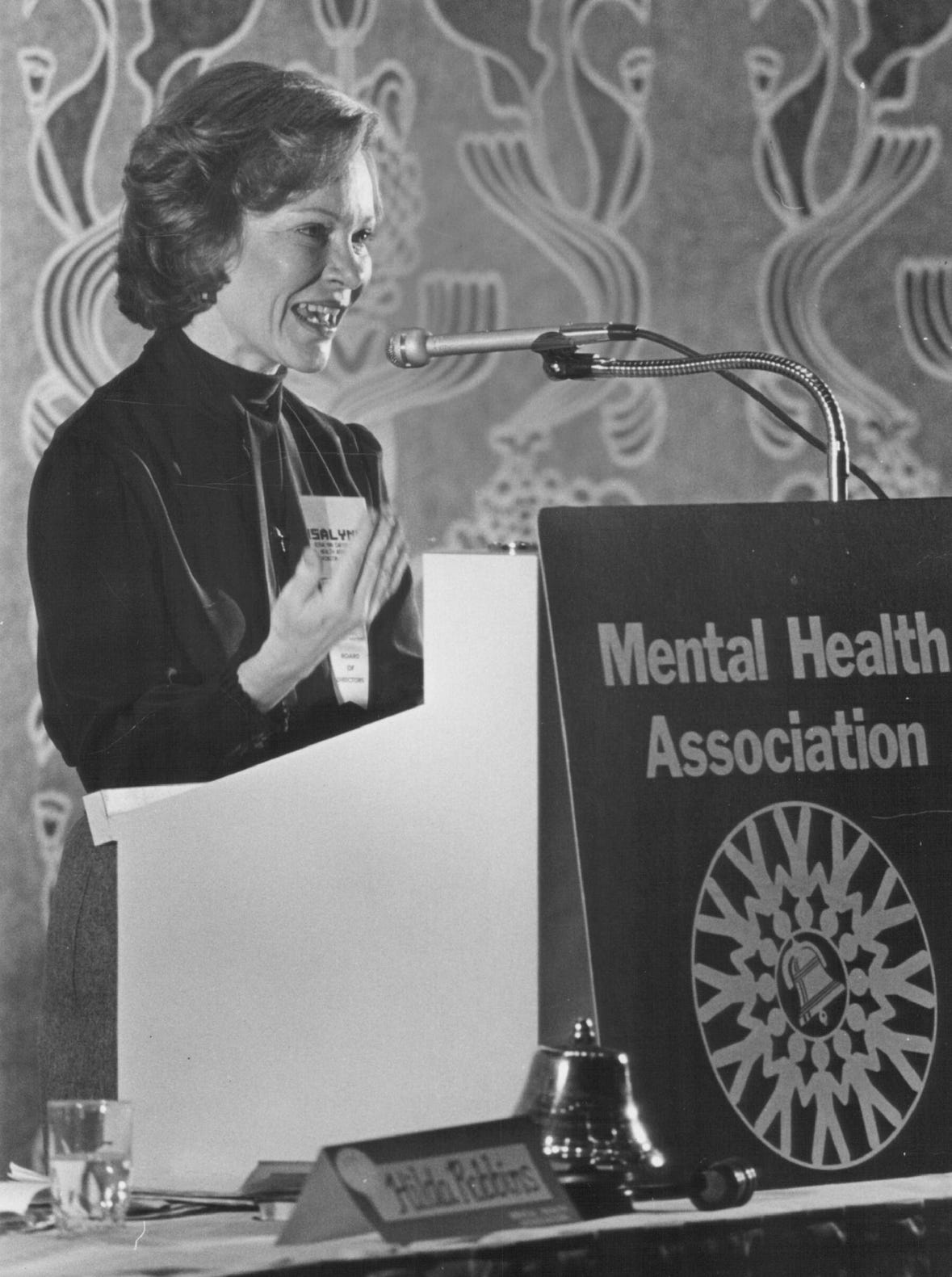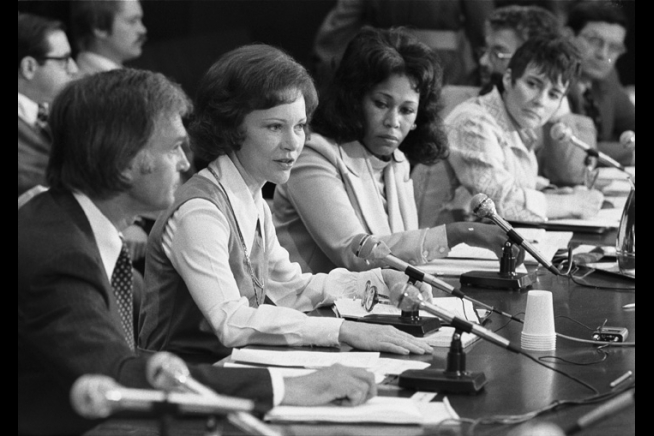In Thanksgiving: Rosalynn Carter as Political Communicator (1927-2023)
By: Michelle Amazeen

With multiple wars raging and the world enduring infodemics, pandemics, and climate-related disasters, it may seem difficult to be grateful for much of anything at present. However, at this time of Thanksgiving in the United States, I wanted to pay homage to a former First Lady whose actions touched on all of these calamities. Rosalynn Carter died this past Sunday on November 19, 2023 at the age of 96 at her home in Plains, Georgia. To do so, I turned to COM’s Senior Associate Dean, Dr. Tammy R. Vigil, whose expertise includes women as political communicators and who has authored two books about First Ladies including Moms in Chief: The Rhetoric of Republican Motherhood and the Spouses of Presidential Nominees, 1992-2016 (University Press of Kansas, 2019) and Melania & Michelle: First Ladies in a New Era (Red Lightning Books, 2019). The following is a tribute from Dr. Vigil:
Rosalynn Carter often appeared the picture of demure, middle-class femininity in a well-ironed blouse neatly tucked into a simple A-line skirt. Yet, behind the outward image of reserved simplicity stood a fearless first lady who broke barriers and pushed boundaries. Rosalynn Carter, well-known as a champion of mental health, served as the key White House administrator on behalf of the Mental Health Systems Act and testified in front of Congress as part of her advocacy efforts. She also vigorously supported the Equal Rights Amendment, led workshops on alleviating unemployment, and supported cultural exchange programs. Carter was frequently an official emissary of the president, embarking on diplomatic efforts in Brazil, Costa Rica, Rome, and Thailand, negotiating on behalf of the president and the nation in a manner few first ladies dared to do. Her courageous efforts to use the “velvet pulpit” of the first ladyship in a meaningful fashion resulted in Time magazine dubbing her “the second most powerful person in the United States” in 1979. Her high level of activity led to legislative efforts to curb her influence, yet she persisted. Rosalynn Carter helped formalize the Office of the First Lady, creating resources and space for future presidential spouses to more effectively advocate for causes that impact a wide range of constituents.
During the more than four decades since she left the East Wing, Rosalynn Carter travelled the world as an inspirational and assertive figure whose goals were, as she put it, “waging peace, fighting disease, and building hope.” She continued to crusade for causes she believed in and remained politically active throughout her life. Through the Carter Center, Rosalynn worked toward peace in the Middle East, led public conversations about sexual inequality, promoted childhood immunizations, and drew attention to the importance of caregiving. In 2018, she led a chorus of former first ladies who spoke out against the separation of migrant children from their families at the southern US border, drawing attention to the humanitarian crisis and calling for change. Two years later, she narrated a video segment for the 2020 Democratic National Convention in which she argued for national unity and optimism. Rosalynn Carter was a model of activism, compassion, determination, and empowerment.
I am grateful for the work of Mrs. Carter on behalf of our country and humanity. I am also grateful for the work of my colleagues whose communication research illuminates these important actors.
I wish you and your families a Happy Thanksgiving with time to reflect and reconnect.
